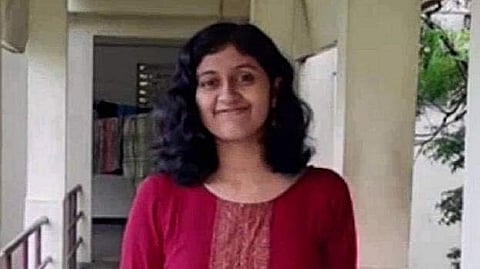IIT-Madras suicide: Why did Madras HC refuse to allow CBI probe into Fathima's suicide?
A division bench of the Madras High Court has rejected pleas from the National Students Union of India (NSUI) and the Kerala-based Loktantarik Yuva Janatha Dal seeking CBI investigation into the suicide deaths of students at the Indian Institute of Technology in Madras over the last several years, including the one of Fathima Latheef on November 9.
A bench led by Justice M Sathyanarayanan dismissed both the petitions with a direction to the management of the IIT to provide effective and periodical psychological counselling to the affected students. NSUI’s petition claims five students have committed suicide in the campus since April 2018, and alleges that the management has not taken enough steps to arrest the trend.
The LYJD petition pegs the number of student suicides since 2008 at a whopping 16. They claimed there was an allegation of religious discrimination and harassment in the case of Fathima Latheef. “Despite this, no action has been initiated,” they contended. Dismissing the petitions, the bench said that it is a well settled position of law that the High Court, in exercise of its power under Article 226 of the Constitution, cannot direct the investigating agency to probe the case in accordance with its views, as the same would amount to unwarranted interference. The Court observed that it cannot issue a mandamus on the basis of mere sympathy or sentiment.
“In so far as the question of issuing a direction to CBI to conduct investigation in a case is concerned, although no inflexible guidelines can be laid down to decide whether or not such power should be exercised, but time and again it has been reiterated that such an order is not to be passed merely because a party has levelled some allegations against the local police,” the judges said.
“This extraordinary power must be exercised sparingly, cautiously and in exceptional situations where it becomes necessary to provide credibility and instil confidence in investigations or where the incident may have national and international ramifications or where such an order may be necessary for doing complete justice...Otherwise, CBI would be flooded with cases and with limited resources, may find it difficult to properly investigate even serious cases,” the bench added.
“No doubt, brilliant academic career of a young student came to an end under tragic circumstances and this Court can understand the feelings of the parents. The statistics provided by SGP disclosed that between February, 2008 and November, 2019, as many as 16 students had committed suicide, maybe on account of stress,” the judges said, while asking IIT-M to conduct periodic counselling.


